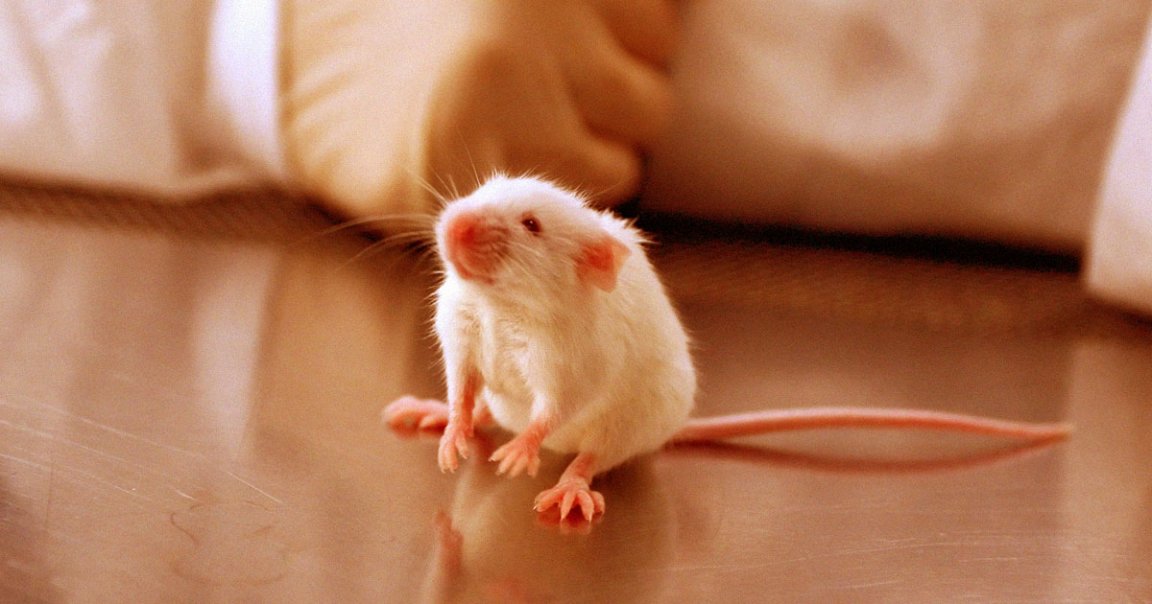
An international team of researchers claim to have slowed the signs of aging in mice by resetting their cells to younger states, using a genetic treatment.
To the scientists, The Guardian reports, it’s a breakthrough in cell regeneration and therapeutic medicine that doesn’t seem to cause any unexpected issues in mice.
“We are elated that we can use this approach across the life span to slow down aging in normal animals,” said Juan Carlos Izpisua Belmonte, Salk Institute professor and co-corresponding author of a new study published in the journal Nature Aging, in a statement. “The technique is both safe and effective in mice.”
But that doesn’t mean we’ll be able to turn back the clock in humans any time soon, as we still don’t fully understand the implications the therapy has on health. And, needless to say, mice are very different from people.
Over time, cells show clear genetic signs of aging called epigenetic markers. These markers can be reset — not unlike messing with the odometer of a used car — using special reprogramming molecules known as “Yamanaka factors,” first developed by Japanese Nobel laureate Shinya Yamanaka in 2006.
These molecules have been shown to be able to reset epigenetic markers to cause cells to express their original states, thereby effectively turning back their clocks.
In an experiment to test if the approach was safe, Izpisua Belmonte — that’s the Salk scientist behind this latest study — and colleagues tested a range of rejuvenation approaches on three groups of lab mice of different ages, giving them doses of Yamanaka factors at regular intervals.
“Indeed, we did not see any negative effects on the health, behavior or body weight of these animals,” Izpisua Belmonte said in the statement.
Compared to a control group of mice that didn’t receive treatment, the mice resembled their younger selves, showing an improved ability to regenerate skin cells and reduced scarring.
Blood tests taken from the treated animals also showed they didn’t show the expected signs of aging.
The effect was most pronounced in groups in which the mice received the treatment for seven to ten months, the equivalent of around 15 human years.
But more research will be required to confirm if the technique can actually turn back the clock on epigenetic markers and not just slow down the process of aging.
We’re also far from being able to tell if the same technique could be used in humans to reverse aging — or if it’s safe to do so in the first place.
“Using Yamanaka factors bears the risk of inducing cancer, and unlike mice, humans — due to their lifespan — carry many more mutations at older age, which might already be predisposed to developing into a cancer,” University of Edinburgh biology of ageing specialist Tamir Chandra, who was not involved in the research, told The Guardian.
For now, the technique is showing early but promising signs of eventually being able to treat age-related diseases, such as Alzheimer’s or brittle bones.
“At the end of the day, we want to bring resilience and function back to older cells so that they are more resistant to stress, injury and disease,” Pradeep Reddy, Salk staff scientist and co-first author, said in the statement. “This study shows that, at least in mice, there’s a path forward to achieving that.”
But it’s not clear, Chandra told The Guardian, whether the treatment will ever work in humans.
“In theory, biological age reversal or reduction could be possible,” he told the paper. “However, we are at very early stages where we need to understand the basic science behind it much better.”
READ MORE: Ageing reversal: scientists rejuvenate tissues in middle-aged mice [The Guardian]
More on aging: Scientists Recorded the Brain Activity of a Person as They Died, and the Results Are Astonishing